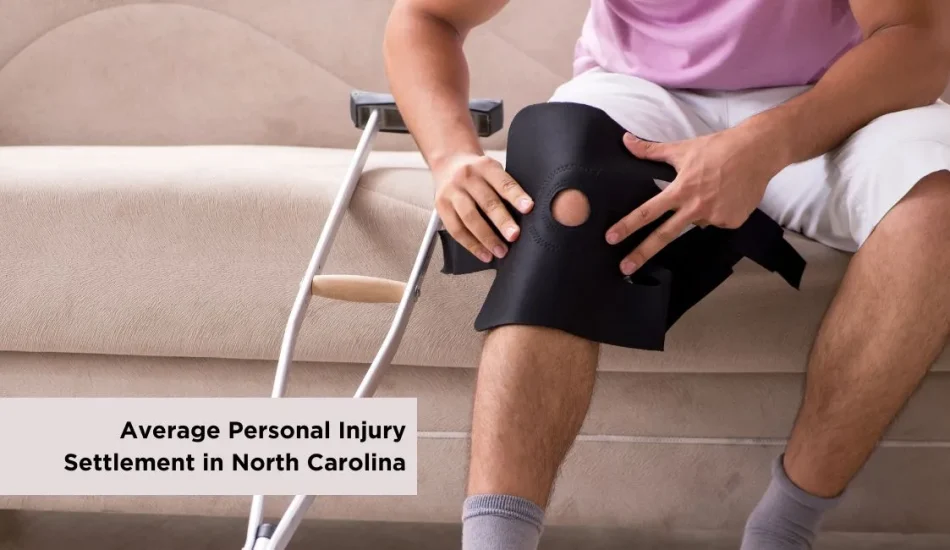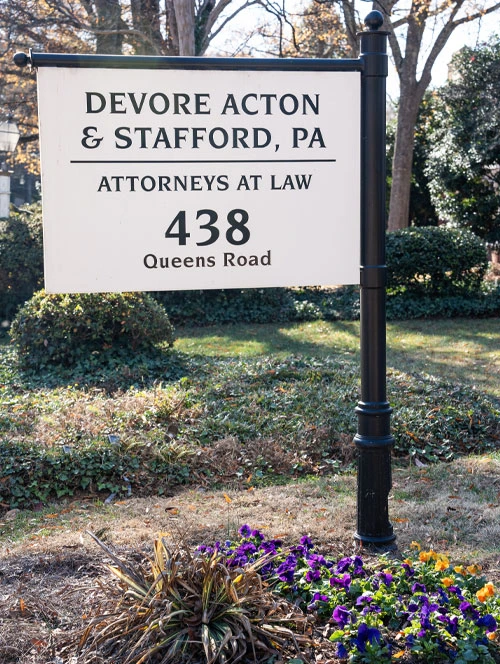Average Personal Injury Settlement in North Carolina [Updated]

You never anticipate you or a loved one becoming injured in an accident. Then, your medical expenses begin piling up, your bills are past due because of loss of wages, and the stress is weighing down on your family. You may begin thinking about compensation and what the average personal injury settlement in North Carolina is.
Average Personal Injury Settlement Amounts
It is difficult to say what the average amount is for a personal injury settlement due to the many different types of personal injury cases, the unique circumstances that each case has, and the specific impact on your and your family’s lives.
A fair personal injury settlement will cover your medical expenses in full, and you will likely receive compensation for lost wages. The settlement might also include compensation for the emotional distress, trauma, and overall impact of the injuries on your life.
Working with a personal injury lawyer can help you understand your legal options and the potential value of your case. They can bring their legal knowledge and experience to work on your behalf so that you have a better chance of receiving a fair settlement.
Incidents That Can Result in Personal Injuries
Personal injury incidents can happen in many different ways; some of the most common ones are:
Motor Vehicle Accidents
Car, truck, motorcycle, and even pedestrian accidents can result in severe injuries, like broken bones, spinal cord injuries, and traumatic brain injuries. In many situations, the negligent actions of one of the parties involved caused the accident, such as speeding, distracted driving, and driving while under the influence of drugs or alcohol.
Slip and Fall Accidents
Slips, falls, or tripping accidents can happen on uneven or slippery surfaces and poorly maintained flooring. They may also occur due to hazardous conditions, like exposed wires or missing handrails. These can cause fractures, sprains, strains, and head injuries.
Workplace Accidents
Accidents in the workplace include falls, equipment malfunctions, repetitive stress injuries, and exposure to hazardous substances. These don’t just happen on construction sites or factories but in offices and stores, too.
Medical Malpractice
Medical errors, negligence, and misconduct by healthcare providers can cause surgical errors, misdiagnosis, medication errors, birth injuries, and more. This happens when a healthcare provider fails to provide the appropriate standard of care and does not follow the accepted medical practices.
Product Liability
Sometimes, design and manufacturing defects can result in consumer products that cause injuries. These include vehicles, pharmaceuticals, medical devices, appliances, and even children’s toys.
Dog Bites/Animal Attacks
Attacks by dogs and other animals can cause puncture wounds, lacerations, infections, and scarring. Pet owners can be held liable if their pets cause injuries.
Assaults and Intentional Acts of Violence
Injuries that result from assaults, battery, sexual assaults, and other intentional acts of violence can be grounds for personal injury claims.
Some other types of personal injury incidents are:
- Abuse and neglect in nursing homes or assisted living facilities
- Recreational incidents, like boating, skiing, and amusement park rides
- Bicycle accidents
- Public transportation accidents
Damages That May Be Recovered
When pursuing a personal injury settlement, you may be eligible for damages. These damages include:
Economic Damages
Economic damages are meant to recover quantifiable financial losses. These can include medical treatment, hospitalization, surgery, medications, therapy, rehabilitation, and other healthcare services that you received due to your injury, along with lost earnings and property damage.
There are no caps on the amount of economic damages that can be recovered.
Non-Economic Damages
Non-economic damages are more subjective and not as easily quantifiable in monetary terms. These are meant to compensate for:
- Pain and suffering
- Emotional distress
- Loss of enjoyment of life
- Loss of companionship, support, or intimacy
- Disfigurement
- Permanent disability
North Carolina has a $500,000 cap on medical malpractice non-economic damages. There is an exception for this cap if the case involves catastrophic injuries that cause severe pain or affect a person’s ability to live life.
Punitive Damages
Punitive damages are only imposed in cases where the defendant acted in a particularly egregious way. These are meant to deter similar behavior in the future. To determine the amount of punitive damages, the court will weigh the severity of the conduct, the extent of the harm they caused, their financial resources, and the need for deterrence.
Punitive damages are capped at three times the amount of any economic damages awarded or $250,000, whichever amount is higher. The exception to this is drunk driving claims.
FAQs
Q: How Much Are Most Personal Injury Settlements?
A: The amount that people receive in a personal injury settlement depends on the severity of the injury, any medical expenses, lost wages, pain and suffering, and more. Discussing your case with an attorney can help you understand how much compensation you may be entitled to in your personal injury settlement.
Q: How Long Does It Take to Reach a Settlement?
A: The time it takes to settle depends on the complexity of your case, the willingness of all parties to negotiate, and the court’s schedule. Some cases can settle pretty quickly, while others may take months or even years to resolve. An experienced personal injury attorney can give an estimate of how long your particular case may take.
Q: Can I File a Personal Injury Claim in North Carolina If I Was Partially at Fault for the Accident?
A: North Carolina’s contributory negligence law applies to personal injury cases, and you can be barred from recovering any compensation if you are found to be even partially at fault for the accident. Any negligence disputes may need to be resolved through legal proceedings. A skilled attorney can help defend against any claims of fault from the defendant and their legal representation.
Q: What Is the Statute of Limitations in North Carolina?
A: The statute of limitations in North Carolina for personal injury cases is generally three years from the date of the incident or the discovery of an injury. If the deadline passes, the court will most likely dismiss your case. Although there are some exceptions to this rule, it is recommended that you meet with a personal injury attorney as soon as possible.
Consult a Personal Injury Attorney About Your Case
At DAS Law Group, P.A., we can meet with you to discuss your case and determine what can be done to address your situation, whether it is you or your loved one who has suffered a personal injury. Contact us today to schedule a consultation.

request your consultation
"*" indicates required fields


